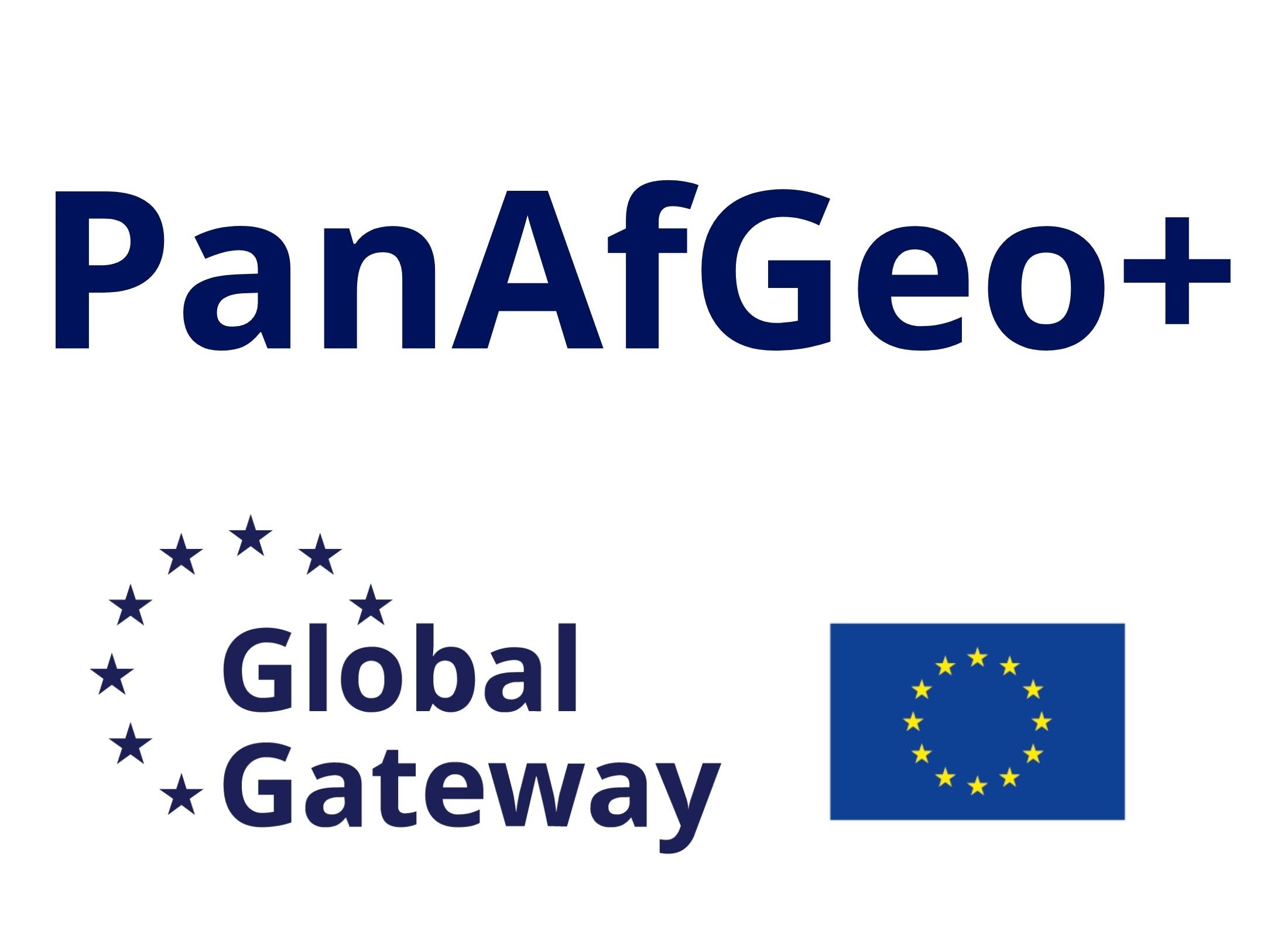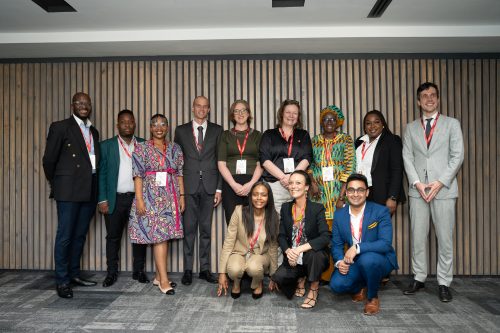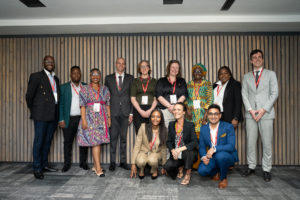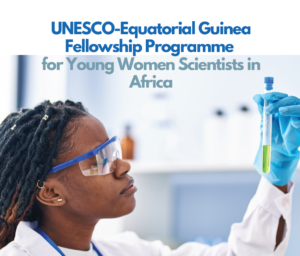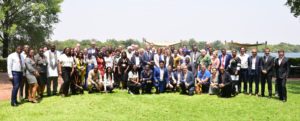PanAfGeo-2 seized the spotlight at Mining Indaba 2025 this week, making a strong impact at the European Commission/Team Europe pod.
Throughout the event, PanAfGeo-2 maintained a strong presence at the EU Pavilion, engaging in discussions with key institutions such as the Council for Geoscience, the Geological Survey of Senegal, the Ministry of Mines, Industry and Technological Development, Cameroon, and the Geological Survey of Namibia.
Strengthening EU-Africa Geoscience Collaboration
On 5th February, two key meetings took place.
In the morning, the Presidents of EuroGeoSurveys (EGS) and the Organisation of African Geological Surveys (OAGS) held a high-level introductory meeting, supported by their respective teams. Rokhaya Samba Diene, President of OAGS, warmly welcomed Tirza Van Daalen, the newly appointed President of EGS. Discussions centred on strengthening EU-Africa geoscience collaboration and reinforcing the commitment to working together through the PanAfGeo-2 programme.
PanAfGeo Achievements and the Introduction of PanAfGeo+
In the afternoon, a high-level meeting was convened to reflect on the achievements of PanAfGeo-2 as it concludes and to introduce PanAfGeo+, an ambitious new phase set to run from 2025 to 2029. This next chapter will further enhance EU-Africa partnerships, strengthen geological survey capacities across Africa, and foster economic cooperation in critical raw materials.
The event brought together key geoscience experts, policymakers, and industry leaders, including Rokhaya Samba Diene, President of the OAGS; Tirza Van Daalen, President of EGS; Cécile Tassin-Pelzer, Adviser at the Africa Directorate of the European Commission (DG INTPA); as well as high-level representatives from African and European geological institutions.
Speaking at the event, Rokhaya Samba Diene reaffirmed the strong collaboration between OAGS and EGS, highlighting how PanAfGeo has reinforced ties between African and European geological institutions, fostering a shared vision for sustainable geoscience development across the continent.
Tirza Van Daalen echoed this sentiment, underscoring the importance of continued cooperation and stating that the PanAfGeo programme has laid the foundation for a long-term EU-Africa partnership in geosciences. She emphasised that with PanAfGeo+, these collaborations will be further strengthened, ensuring that Africa’s geological potential plays a key role in global sustainability.
During the meeting, Jean-Claude Guillaneau and Nicolas Charles, Coordinators of the PanAfGeo Project (BRGM), presented key findings from Phases 1 and 2, demonstrating the initiative’s impact on advancing geological knowledge, building technical capacity, and fostering EU-Africa cooperation. Since its inception in 2016, PanAfGeo has trained nearly 1,750 geoscientists coming from all African countries, significantly contributing to the development of Africa’s geoscience sector. The coordinators also introduced PanAfGeo+, outlining its objectives to further develop African geological surveys and strengthen cooperation in the exploration of critical raw materials.
A high-profile panel discussion followed, focusing on the future of mineral exploration, environmental protection, and sustainable resource management. Moderated by Willem Meintjes, Executive Manager at the Council for Geoscience, South Africa, and Julie Hollis, Secretary General of EGS, the panel featured Jean-Claude Guillaneau, Coordinator of PanAfGeo (BRGM); Claudio Bacigalupi, Head of Cooperation at the EU Delegation to Zambia; and Raoul Wazenga, Director General of the National Geological Survey of Congo (DRC). The discussion provided key insights into the challenges and opportunities facing Africa’s geoscience sector and the role PanAfGeo+ will play in addressing them.
The meeting served as a platform for engaging discussions, expert insights, and networking opportunities, reinforcing the importance of sustained collaboration in shaping the future of Africa’s geoscience sector. The launch of PanAfGeo+ marks a significant milestone, ensuring continued support for geological advancements, capacity building, and sustainable resource management across the continent.
